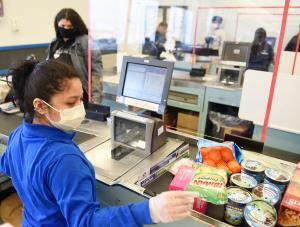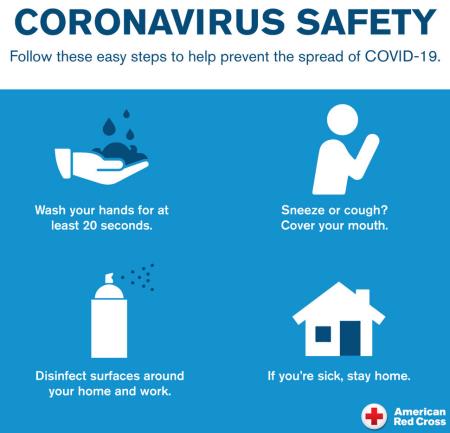 The United Food and Commercial Workers Local 400 representing grocery workers in the D.C. area are requesting recognition as "essential workers requiring enhanced protection".
The United Food and Commercial Workers Local 400 representing grocery workers in the D.C. area are requesting recognition as "essential workers requiring enhanced protection".
To date Minnesota, Michigan and Vermont have designated retail grocery workers in the "emergency category". This classification enables them to request reimbursed childcare and other benefits including hazard pay and personal protection.
Individual states and local jurisdictions have imposed regulations on supermarkets and food stores to limit the possibility of transmission of COVID-19. These include single entry and exit, designated pathways through isles, hand-washing stations for staff, obligatory wearing of masks, protective screens for checkout clerks and decontamination of keypads. All major supermarket chains have introduced social distancing at checkout counters.
Specific problems still exist with farmer's markets most of which have been closed. In some jurisdictions, grab-and-go regulations are enforced and handwashing stations have been installed.
 The "family farm" infrastructure relies on farmers’ markets to sell their products and reopening of locations is considered necessary for financial survival. Pre-ordering of pre-packaged produce and a restriction on the numbers of customers are measures under consideration to allow farmers’ markets to reopen.
The "family farm" infrastructure relies on farmers’ markets to sell their products and reopening of locations is considered necessary for financial survival. Pre-ordering of pre-packaged produce and a restriction on the numbers of customers are measures under consideration to allow farmers’ markets to reopen.